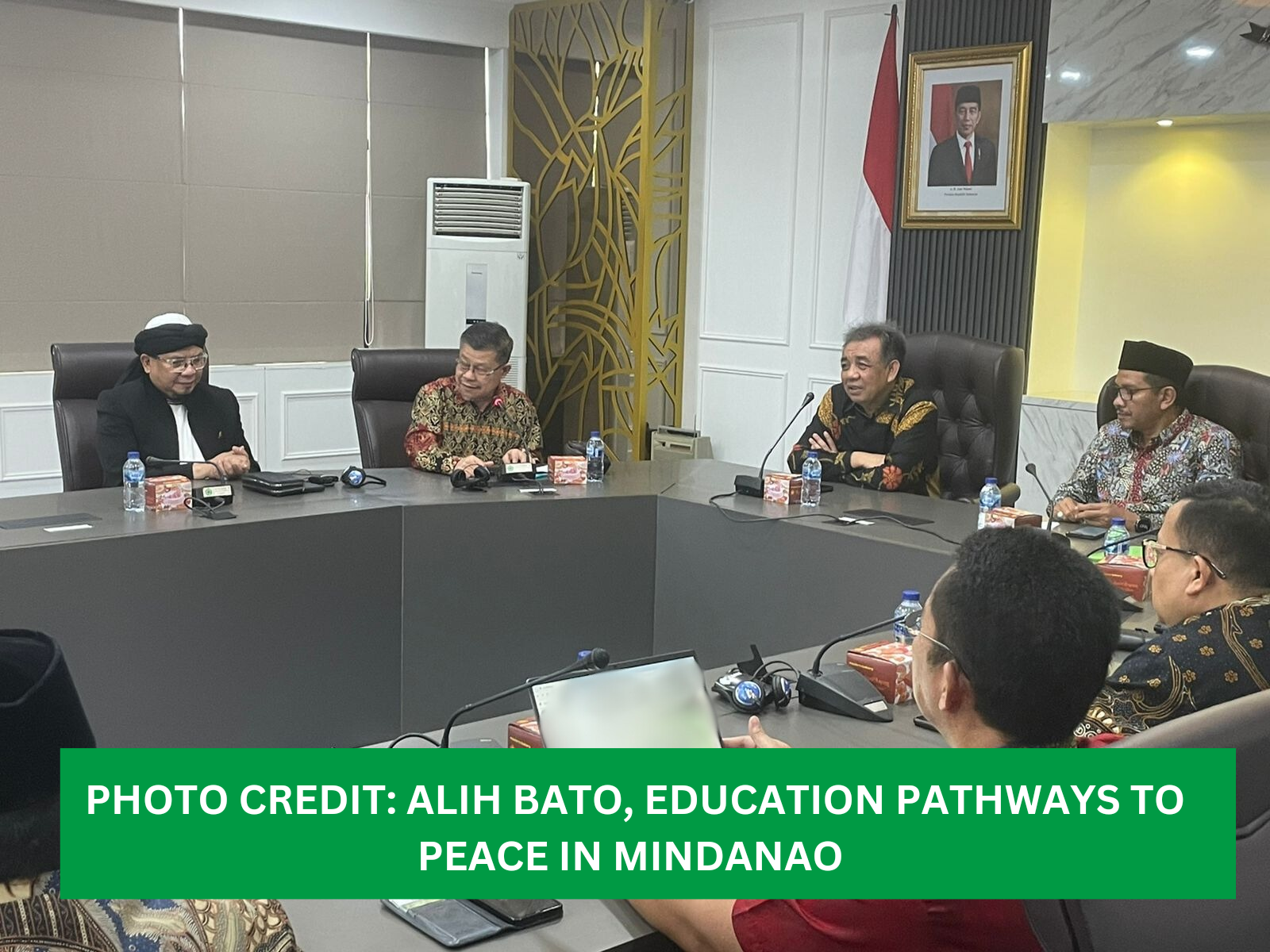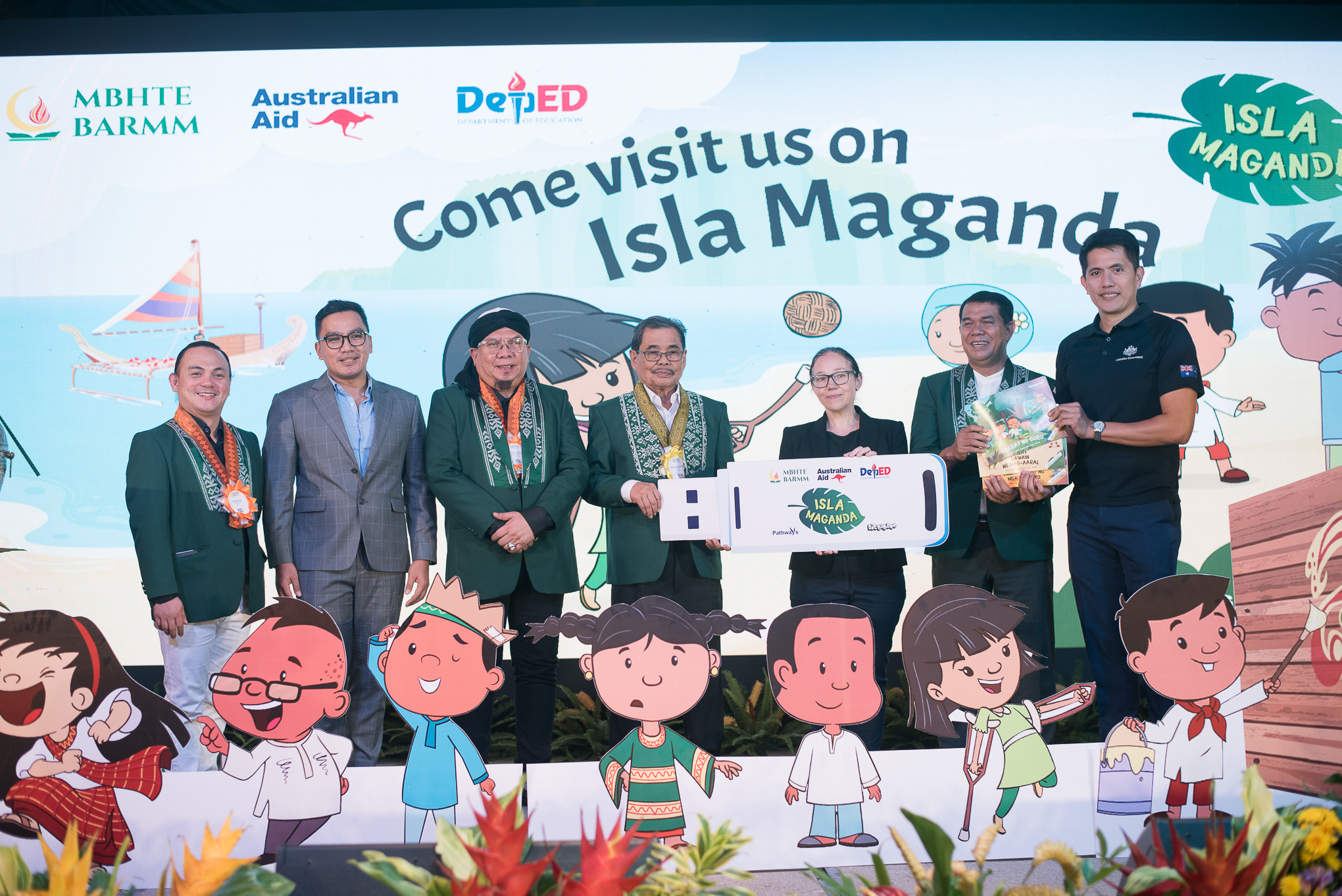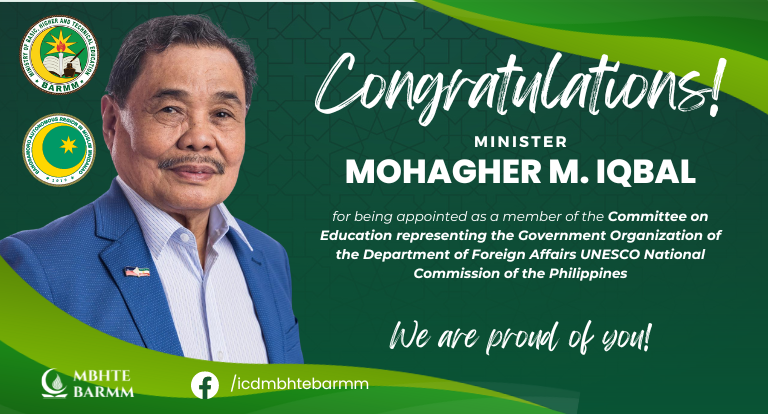04 MAY 2024 – South-South Cooperation is a valuable tool to accelerate progress on quality education. This week, delegates from Bangsamoro Autonomous Region in Muslim Mindanao (BARMM) Philippines, visited Jakarta, Indonesia, to discuss madrasah education policies and their implementation with ministry leaders.
Prof. Tahir G. Nalg, Director General for Madaris Education in BARMM, says that building stronger regional connections will help to lift the educational capability of madrasah.
“There are close ties between Mindanao in the Philippines and north Sulawesi in Indonesia. We are committed to promoting, developing, strengthening, and establishing education systems that are integrated, accessible, upholding quality standards, and stimulating participation of all.”
Prof. Abu Rokhmad Acting Director General of Islamic Education from Indonesia’s Ministry of Religious Affairs added, “Through sharing good practices related to capacity-building, supporting knowledge generation and lesson learning, we will continue to transform learning through madrasah education.”
Abu Rokhmad says madrasas are part of the Indonesian education system. All subjects taught in public schools are also taught in madrasas. Madrasahs add Islamic religious subjects consisting of Qur’an Hadith, Akidah Ahklak, Fikih and Islamic cultural history to build the character of students. The uniqueness of these subjects makes the quality of madrasa graduates equal to that of public schools. It has been proven that madrasa graduates can gain admission to many prestigious universities in Indonesia and overseas and are able to excel at the national and even international level. “We are ready to assist the Bangsomoro in developing the quality of madrasas in the Philippines with our experience in Indonesia,” he added.

BARMM has some 1,679 madaris whilst Indonesia has 86,343 formal madrasah dotted across its islands. Both BARMM and Indonesia, particularly in remote areas, share similar barriers to education such as poverty, the distance of the school from home, parent’s attitudes toward schooling, and a lack of technological access.
Significant progress has been made to improve access and quality over the past decade, including School-Based Management (SBM) and Quality Assurance (QA) policies which underpin Indonesia’s education system and BARMM is now looking to benchmark against.
On-going dialogue to strengthen madrasah education
With strong similarities between Indonesia’s current education system and the intended education system for BARMM, learnings from Indonesia’s efforts to improve student learning outcomes including through its standards based education system, will inform guidelines for Madrasah-Based Management and Madrasah Quality Mechanism.
In Indonesia, schools and madrasah must adhere to eight national standards covering aspects such as curriculum, assessment, school and madrasah management, financing and teacher practice.
Quality Assurance processes support madrasah and schools to continually improve their ability to deliver a quality education, and ultimately, to provide students with the skills they need to succeed later in life. All schools and madrasah in Indonesia undergo quality accreditation administered by National Body of Accreditation for Early Childhood and Basic Education (BAN PDM), and as they adhere to the same national regulations and standards, learners can transfer from madrasah to regular schools with ease. Students from madrasah typically perform as well as students from regular schools in enrolment tests for public universities, indicating that the quality of education in Indonesia is evenly distributed across different types of educational institutions.
In BARMM, The Ministry of Basic, Higher and Technical Education (MBHTE) recently finalised its contextualised framework of the Philippines School-Based Management, and Quality Assurance continues to be integral, involving an external quality assurance process for every school and madrasah and periodic quality accreditation. Delegates will consider how approaches in Indonesia such as standards and accreditation, and increasing use of data to determine priorities for school and madrasah improvement, could similarly strengthen approaches to madrasah quality improvement in BARMM. Inputs will also support 25 select madrasah to implement school based management and quality assurance systems, and disseminate best practices into broader madrasah across BARMM.
This unique opportunity for knowledge-sharing was supported by Australia through Education Pathways to Peace in Mindanao (Pathways) which provides quality inclusive kindergarten to grade 3 education for all children across BARMM, and Innovation for Indonesia’s School Children (INOVASI) which supports the Government of Indonesia to improve learning and achievement of foundational skills for all Indonesian primary students.
Meanwhile, Education Minister Mohagher Iqbal acknowledges the support of all education actors in supporting madrasah education.
“We hope that one of the enduring legacies of the BARMM government is the enhancement of the Madaris Education system,” says Minister Iqbal. “While it takes time to support policy and implementation changes and pursue education reforms, we commend all stakeholders, especially the Australian Government and Pathways, for their commitment to strengthening Madaris education through capacity building and knowledge sharing.”
#END#
Education Pathways to Peace in Mindanao (Pathways) is supported by Australia in partnership with the Philippines and Bangsamoro to provide quality inclusive kindergarten to grade 3 education for all children across the Bangsamoro Autonomous Region in Muslim Mindanao (BARMM). The program focuses on early years education as the foundation for life-long learning and development. By engaging and collaborating with a wide range of education stakeholders, promoting peace in education reform, and addressing inequity and disparity in education delivery, the program also contributes to peacebuilding in the region.
Innovation for Indonesia’s School Children (INOVASI) is an Indonesian and Australian Government education partnership program which is supporting the Government of Indonesia to improve learning and achievement of foundational skills for all Indonesian primary students. Working with the Ministry of Education and Culture, Ministry of Religious Affairs, the National Development Planning Ministry (Bappenas), and sub-national partners in the provinces, INOVASI Phase 3 now takes the focus on the development of foundational skills through to the end of the primary grades for students in primary school and madrasah.
The Delegation from BARMM is led by Madaris Education Director General Tahir Guiamel-Gandawali Nalg and Basic Education Director General Abdullah Salik, Jr. from the Ministry of Basic, Higher and Technical Education. They are joined by representatives from the Department of Education (DepEd), and Australian Government Department of Foreign Affairs and Trade (DFAT).







